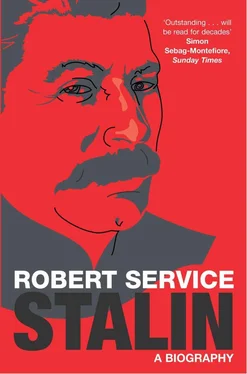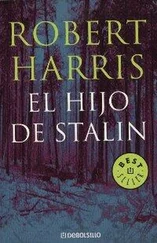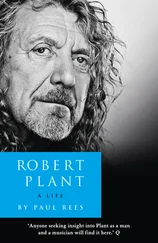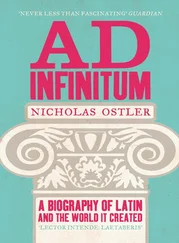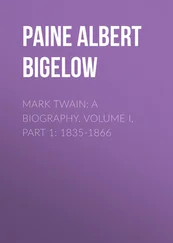Kamenev, Sergei
Kameneva, Olga
Kaminski, G.M.
Kaminski, V.
‘Kamo’ see Ter-Petrosyan, Semën
Kanner, Grigori
Kapanadze, Peter
Kapler, Alexei
Karamzin, Nikolai
Karpov, B.
Karpov, G.
Katyn forest massacre (1940)
Kautsky, Karl; The Driving Forces and Prospects of the Russian Revolution
Kavtaradze, Sergei
Kazakhstan: famine in; supposed genocide in; agricultural reforms in
Kemal Pasha (Ataturk)
Kennan, George
Kerenski, Alexander: in Provisional Government; and conduct of First World War; premiership; calls Democratic Conference; Lenin demands overthrow of; and Bolshevik threat; defeated in move against Petrograd
Ketskhoveli, Lado
Ketskhoveli, Vano
Ketskhoveli, Vladimir
Kharkov
Khazan, Tamara (wife of Andrei Andreev)
Khazanova, Tamara
Khlevnyuk, Oleg
Kholodnaya Rechka
Khrennikov, Tikhon
Khrushchëv, Nikita: denounces Stalin; on Stalin’s early modesty; in Great Terror; Stalin accuses of being Pole; on ‘cult of personality’; association with Stalin; womanising and drinking; rebuked for congratulating Stalin on victory over Germany; on counter-productive effect of repression; desires agricultural reform; and famine in Ukraine (1947); Stalin teases for corpulence; at Nineteenth Party Congress; fears Stalin’s disfavour; at Stalin’s 73rd birthday party; watches film with Stalin; and succession to Stalin; reforms after Stalin’s death; rise to power; removed from power (1964); reputation
Khrustalëv, Ivan
Kiev: falls to Germans
Kim Il-Sung
Kirov, Sergei: supports Stalin on status of republics; in Caucasian Bureau; allies with Stalin; and grain procurement; friendship with Stalin; asked to take over from Stalin; assassinated; and national identity
Kishkin, Nikolai
Kislovodsk episode
Kleiner, I.N.
Klimov, M. (Svetlana’s bodyguard)
Knorin, V.G.
Knunyants, Bogdan
Kobulov, Bogdan
Kolchak, Admiral Alexander
Kolkhoz Model Statute (1935)
kolkhozes (collective farms); markets
Kollontai, Alexandra
Komsomol: militancy; support for Stalin
Kondratev, Nikolai
Konev, General Ivan
Königsberg,
Konovalov, Alexander
Korchagina, Alexandra
Korean War (1950–53)
Kornev (acquaintance of Stalin)
Kornilov, General Lavr
Korshunova, Fekla
Kosior, Stanislav
Kovalëv, Ivan
Kraków
Krasin, Lev
Krasnov, General P.N.
Krasnoyarsk
Krasnoyarsk Party Regional Committee
Kravchenko (prison guard)
Krestinski, Nikolai,
Kronstadt; naval mutiny (1921)
Kruglov, Sergei
Krupskaya, Nadezhda (Lenin’s wife): invites Stalin to dine; dispute with Stalin; and Lenin’s health decline; Stalin abuses; objects to embalming and display of Lenin; as Lenin’s biographer; and Lenin’s Testament; relations with Nadya Allilueva; asks Nadya Allilueva to intervene in Georgian affair; supports Zinoviev and Kamenev; and culture
Kseshinskaya, Matilda
Kuban area (north Caucasus)
Kuibyshev
Kuibyshev, Valeryan
kulaks: Stalin persecutes; Bukharin supports; wish for commercial opportunities; taxed; flourish; excluded from collective farms; repressed in Ukraine; see also peasants
Kulikov, Yevgeni
Kun, Miklós
Kuntsevo
Kuomintang,
Kurchatov, Igor
Kureika (hamlet), Turukhansk District
Kurile Islands
Kursk, battle of (1943)
Kushner, Professor
Kutaisi Prison
Kutuzov, Mikhail
Kuzakova, Maria
Kuznetsov, Alexei
Kuznetsov, Admiral N.G.
Kvali (Tbilisi newspaper)
labour camps; see also Gulag
Labouring Peasant Party (fictitious)
Lagidze, Mitrofan
Lakoba, Nestor
Landau, Lev
Largiashvili (seminarist)
Largo Caballero, Francisco
Lashevich, Mikhail,
Latvia: resists Soviet expansionism; as Soviet republic; nationhood in; reclaims independence; German-Soviet conflict over; Stalin demands and occupies; Germans conquer; reannexed by USSR; Stalin’s post-war aims in; armed resistance in; deportations from; see also Baltic states
Latvians: killed in Great Terror
Lazurkina, Dora
League of the Militant Godless,
League of Nations: excludes USSR; USSR applies for admission; ineffectiveness against Japan
Left Opposition: supports Trotski; criticises economic policy; Stalin defeats
Left Socialist-Revolutionaries
Lend-Lease
Lenin in October (film)
Lenin, Vladimir: founds USSR; Stalin’s early impressions, of; Stalin’s attitude to; agrarian policy; and founding of Iskra ; Stalin meets in Finland; at 1905 Stockholm conference; at London conference (1907); offers deal to Georgian Mensheviks; accepts criminal funding; breaks with Mensheviks; forms new Central Committee; co-opts Stalin onto Central Committee; praises Stalin; Stalin meets in Kraków; convenes conference in Prague; as thinker; Stalin’s disagreements with; and national question; attacks Jews; opposes Russian participation in First World War; letter from Stalin in exile; demands overthrow of Provisional Government; returns to Russia; revolutionary policy; in hiding following arrest warrant; regard for Trotski; drafts decrees on land and peace; forms Sovnarkom; disfavours coalition of socialist parties; foreign policy; forms Cheka; and separate peace with Central Powers; and state terror; in Civil War; and Stalin’s authority in Volga region; and control of Cheka; Stalin defers to; prestige; and war with Poland (1920); attends Ninth Party Conference; and Trotski’s condemnation of trade unions; introduces New Economic Policy; seeks control of central party apparatus; approves appointment of Stalin as General Secretary of Party; health problems; administrative duties; assassination attempt on; view of and relations with Stalin; renewed alliance with Trotski; favours federal structure; Testament (‘Letter to the Congress’); and Stalin’s abuse of Krupskaya; death and funeral; posthumous cult; Stalin writes on; Nadya Allilueva works for; speaks at Tenth Party Congress; and Stalin’s personality; on capitalist competitiveness; and Mayakovski; belief in outside interference; and promotion of professionally competent; rebukes Stalin for violence; on decisive action; compared with Stalin; cult; in Stalinist Short Course; and world revolution; proposed evacuation of corpse in war; view of foreign hostility; on end of capitalism; ideological influence on Stalin; Stalin invokes in Nineteenth Party Congress speech; communist state policy; April Theses ; ‘Better Fewer But Better’; ‘Marxism and Insurrection’; Materialism and Empiriocriticism ; The State and Revolution ; What Is To Be Done?
Leningrad see St Petersburg
Leningrad Affair (1948)
Leningrad Opposition
Levitan, Isaak
Libya: as Soviet protectorate
Lie, Trygve
linguistics: Stalin’s interest in
literacy and numeracy: increased
Lithuania: resists Soviet expansionism; regains Vilnius; established as Soviet republic; reclaims independence; and German expansionism; Stalin demands and occupies; Germans conquer; reannexed by USSR; Stalin’s post-war aims in; armed resistance in; deportations from; see also Baltic states
Litvinov, Maxim
Livanova, V.
Lominadze, Vissarion
London: Stalin attends 1907 Party conference in
Longjumeau, near Paris
Low, (Sir) David
Lozgachëv, Pavel
Ludwig, Emile
Lunacharski, Anatoli
Luxemburg, Rosa
Lvov, Prince Georgi
Lysenko, Timofei
MacArthur, General Douglas
Machavariani, David
Machiavelli, Niccolò, The Prince ,
Maclean, Donald
Читать дальше
